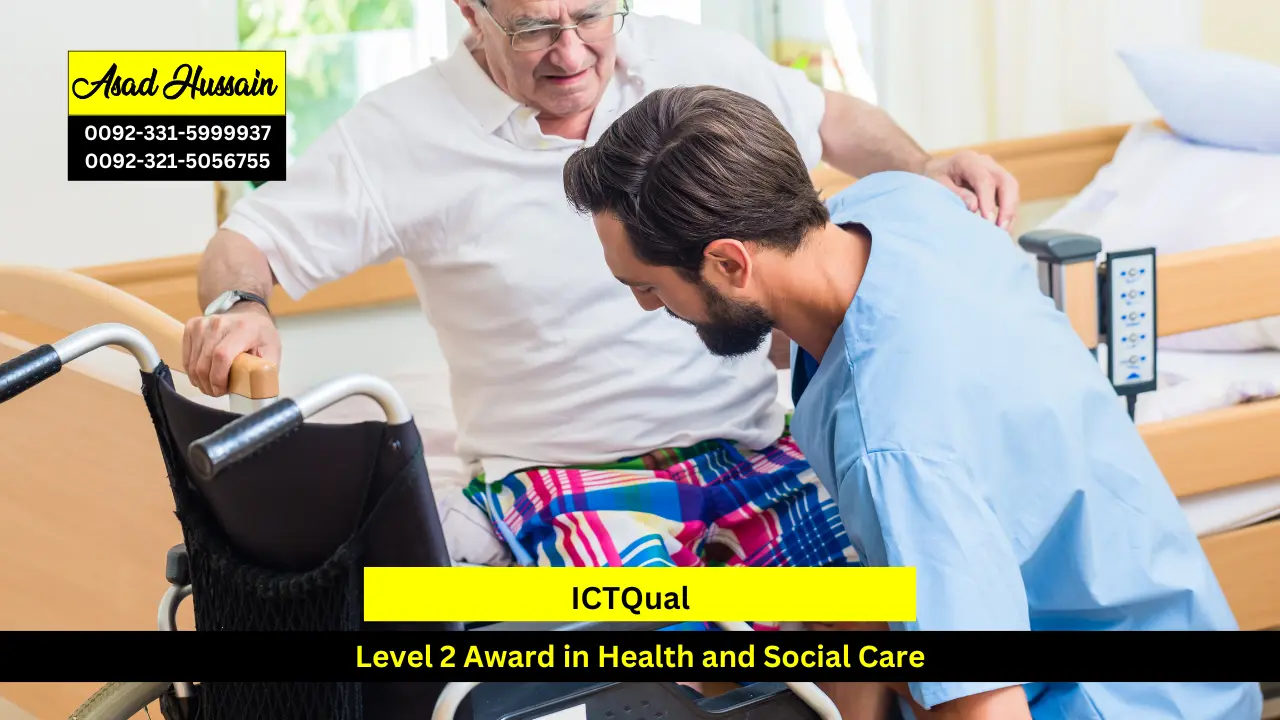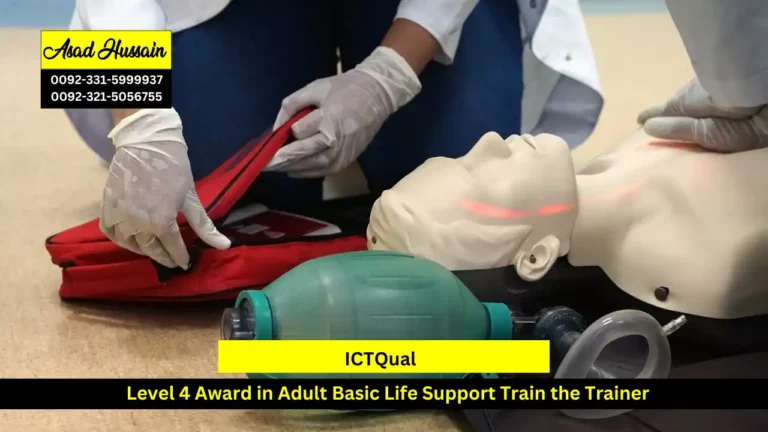The health and social care sector is one of the most vital industries in any society, providing essential services to support the well-being of individuals and communities. For those looking to start a career in this rewarding field, the Level 2 Award in Health and Social Care offers an excellent entry point. This qualification equips learners with the foundational knowledge and skills needed to embark on a career dedicated to making a positive difference in people’s lives.
The Level 2 Award in Health and Social Care is designed for individuals who are new to the field and wish to gain a solid grounding in health and social care principles. It is suitable for school leavers, career changers, or anyone looking to gain a formal qualification that could lead to further studies or entry-level positions in the sector.
The Level 2 Award in Health and Social Care is an excellent starting point for anyone looking to begin a career in this essential and rewarding sector. By providing a strong foundation of knowledge and practical skills, this qualification prepares learners for further education and employment opportunities in health and social care. If you have a passion for helping others and want to make a positive difference, this award could be the perfect first step on your career journey.
Program Highlights
Mandatory Units
- Communication in Health and Social Care
- Understanding Mental Health and Well-being
- Safeguarding and Protection in Care Settings
- Person-Centered Approaches in Health and Social Care
- Health and Safety in Health and Social Care Settings
- Promoting Equality and Inclusion in Health and Social Care
- Working in Partnership in Health and Social Care
- No specific educational qualifications are typically required for entry into this course. It is open to individuals with diverse educational backgrounds, including those with no prior qualifications. This makes it accessible to a wide range of learners, including school leavers and adult learners seeking to retrain or upskill.
- Candidates are usually required to be at least 16 years old to enroll in the Level 2 Award in Health and Social Care. This ensures that learners have the maturity and readiness to engage with the course material and participate effectively in classroom activities.
- Since the course is conducted in English, proficiency in the English language is essential to comprehend course materials, participate in discussions, and complete assessments effectively.
- Basic technical skills, including proficiency in using computers, conducting data analysis, and understanding mathematical concepts, are beneficial for successfully completing the course requirements.
Communication in Health and Social Care
- Understand the principles of effective communication: Describe the different forms of communication and explain the importance of effective communication in health and social care settings.
- Develop communication skills: Demonstrate the ability to use verbal and non-verbal communication techniques appropriately.
- Overcome communication barriers: Identify potential barriers to communication and develop strategies to overcome them.
- Confidentiality and information sharing: Understand the importance of confidentiality and the protocols for sharing information within health and social care settings.
Understanding Mental Health and Well-being
- Recognize the importance of mental health: Define mental health and well-being and explain their importance to overall health.
- Identify common mental health conditions: Describe common mental health conditions and their impact on individuals.
- Support mental well-being: Demonstrate ways to support individuals in maintaining and improving their mental well-being.
- Awareness of mental health services: Understand the role of mental health services and how to access them.
Safeguarding and Protection in Care Settings
- Understand safeguarding principles: Explain the concept of safeguarding and its importance in care settings.
- Recognize signs of abuse: Identify the different types of abuse and the signs and symptoms associated with each.
- Respond to safeguarding concerns: Describe the procedures for reporting and responding to safeguarding concerns.
- Legal and ethical responsibilities: Understand the legal and ethical responsibilities related to safeguarding in health and social care.
Person-Centered Approaches in Health and Social Care
- Principles of person-centered care: Define person-centered care and explain its significance in health and social care.
- Developing care plans: Demonstrate the ability to develop and implement individualized care plans based on the needs and preferences of the individual.
- Empowerment and autonomy: Explain how to support individuals in making their own choices and taking control of their care.
- Respect and dignity: Understand the importance of respecting individuals’ rights and dignity in all aspects of care.
Health and Safety in Health and Social Care Settings
- Understand health and safety legislation: Describe the key health and safety legislation relevant to health and social care settings.
- Identify workplace hazards: Identify common hazards in health and social care environments and explain how to manage them.
- Promote a safe working environment: Demonstrate ways to maintain a safe and healthy working environment for both care providers and recipients.
- Emergency procedures: Understand the procedures for responding to emergencies, including fire safety and first aid.
Promoting Equality and Inclusion in Health and Social Care
- Understand equality and diversity principles: Explain the principles of equality, diversity, and inclusion in health and social care.
- Promote inclusive practices: Demonstrate ways to promote inclusive practices and challenge discrimination in care settings.
- Cultural competence: Understand the importance of cultural competence and how to provide care that respects individuals’ cultural backgrounds.
- Rights and responsibilities: Describe the rights of individuals in health and social care and the responsibilities of care providers in upholding these rights.
Working in Partnership in Health and Social Care
- Principles of partnership working: Explain the importance of partnership working in health and social care.
- Collaboration and teamwork: Demonstrate effective collaboration and teamwork skills in health and social care settings.
- Communication and information sharing: Understand the importance of effective communication and information sharing between care providers and other professionals.
- Service integration: Describe how integrated care services can improve outcomes for individuals and communities.
The Level 2 Award in Health and Social Care is ideal for individuals who are passionate about making a positive impact in the lives of others and are looking to start a career in this essential sector. It is designed for school leavers, career changers, and those with no prior experience in health and social care who wish to gain a foundational understanding of the field. This course is also suitable for individuals already working in the sector in an unqualified capacity, seeking formal recognition of their skills and knowledge. By providing essential training and practical skills, the Level 2 Award prepares learners to confidently step into various entry-level roles within health and social care environments, or to further their education and career progression in this rewarding industry.







